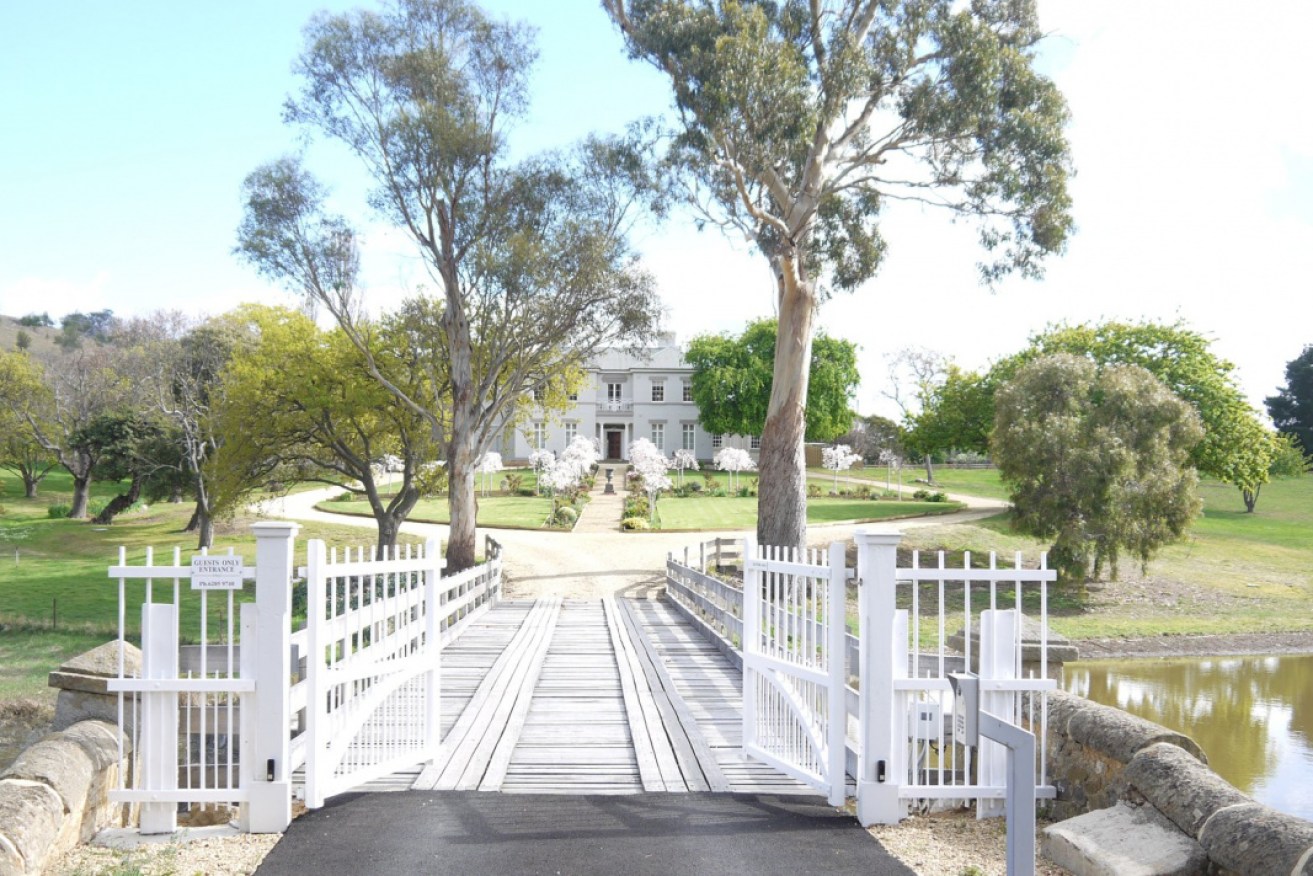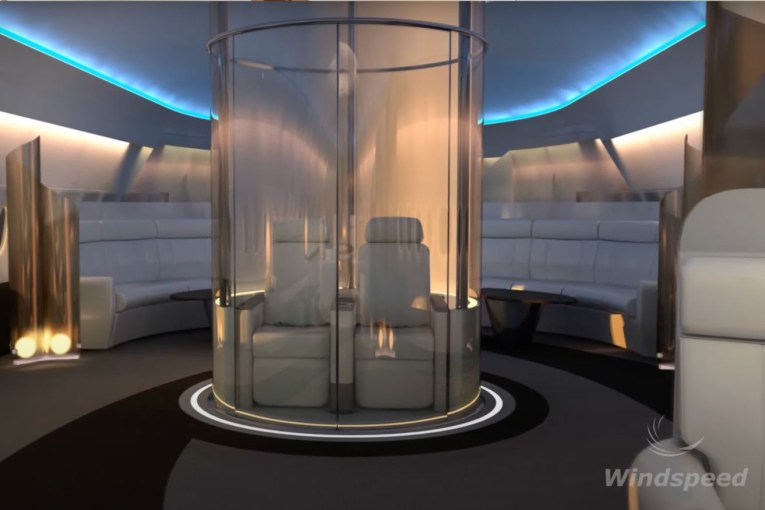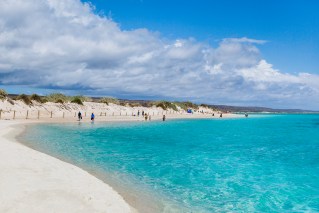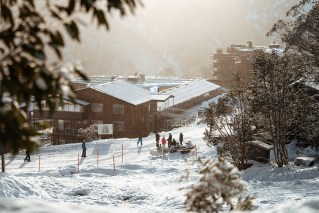Tasmanian treats: A local’s guide to the apple isle’s best new attractions

Prospect House reopened early in 2019 after a thorough renovation. Photo: Facebook
Tastings at an oyster farm and sleeping over in a transformed Hobart nightclub and brothel are among new attractions in Tasmania this summer.
1. Island experience
Two eco-luxe pods overlooking the water on beautiful Bruny Island are a perfect escape from the everyday grind.
Bruny is the “island off an island, off an island” but just a short drive and ferry ride from Hobart.
The recently opened Free Spirit Pods were handcrafted from sustainable Tasmanian timbers and fitted out with quality inclusions on three hectares of waterfront bushland that comes alive with wildlife at night.
Get Shucked‘s oyster bar and the Bruny Island Cheese Company are just a short drive away, and there is a two-seater kayak and fishing rods available for guests.
While you are miles from anywhere, the pods offer all modern luxuries including Smeg appliances, a DeLonghi cooktop, free Wi-Fi, Netflix and Bose sound system, along with gourmet treats left by the hospitable owners.
There are little luxuries such as heated bathroom floors and surprises in the fridge that make this somewhere special.
Throw in spectacular views from the deck and the location right on a beach with crystal clear waters.
You can arrange to fly in from Hobart by seaplane with Above & Beyond, ensuring an unforgettable experience.
Find out more about the pods here.

Soak up the serenity (and luxury) at Bruny Island’s new Free Spirit Pods. Photo: Free Spirit Pods
2. Tarkine taste treats
Tasmanian oysters are among the finest in the world and travellers can now enjoy a gourmet experience at Tarkine Fresh Oysters in Smithton’s Duck Bay.
With increased interest from consumers about where their food comes from, the 40-year-old business has launched tours that conclude with oyster shucking demonstrations and tastings.
Tarkine Oysters has a 61-hectare lease in Duck Bay, and a further 15-hectares in nearby Big Bay. Each day, up to six vessels collect the molluscs, many of which are destined for mainland restaurants.
Duck Bay has a 3.5-metre rise and fall in the tide, providing the perfect environment for growing oysters.
“Starting tours gives visitors a reason to come and see how we operate and see how the oysters they enjoy so much are grown,” retail manager Cassie Plaza says.
https://www.instagram.com/p/B0DVv2YBPHF/
3. Transformed location
The new 41-room Moss Hotel is a hidden boutique retreat above Hobart’s busy Salamanca Place. The building was once a warehouse and has also been both a brothel and one of Hobart’s most notorious nightspots.
Some rooms offer balconies and deep bathtubs, others are lofts.
Greenery features throughout, through the use of vertical internal gardens and moss. The rooms also highlight the raw timber beams and sandstone block walls within the heritage warehouses.
“I always knew that these old warehouse buildings would lend themselves to a great hotel conversion,” co-owner Peter Behrakis says.
“It was just a matter of waiting for the right moment – which is now.”
The hotel’s mini bars showcase Tasmanian produce and Moss is an easy walk to many of the city’s acclaimed restaurants.

The history is colourful at Moss Hotel, but the present is all monochromatic style. Photo: Supplied
4. Wine experience
Visitors to the Coal River Valley wine region – just outside Hobart – have a new luxury accommodation option that is owned and operated by one of the island state’s most famous wine-making families.
Prospect House Private Hotel, one of Tasmania’s oldest and most elegant country house hotels, is open for business after new owners John and Libby Pooley invested more than $5 million in refurbishing and upgrading the historic property they bought in 2017.
Built with convict labour in 1830, Prospect House is a fine example of a Georgian-style country house. It’s a charming place to wind down for a day or two with lovely grounds and beautiful surroundings.
It has 12 guest suites to accommodate up to 24 guests and, with a minimum staff to guest ratio of about 1:2, aims to attract guests looking for a luxurious experience with exceptional hospitality and service in a heritage location.
Rooms have tablets with local information and all the usual hotel luxuries. Arrival beverages, afternoon tea, free Wi-Fi and Nespresso coffee and Poet teas are included.
Local experiences include Pooley Wines vineyard tours and tastings; in-room massage and wellness treatments; farmhouse picnic lunches and chauffeured private car transfers and tours.
The restaurant at Prospect House celebrates the farmers and producers of Tasmania’s south-east. Guests can dine inside or under the stars in summer. There is an honour bar for those wanting a late-night tipple; maybe a small-batch Tasmanian whisky in the lounge.
Prospect House is within an easy stroll, bike ride or short drive from the historic village of Richmond – and just across the road from the Pooley Wines cellar door.
prospecthouseprivatehotel.com.au

Prospect House offers amazing luxury – and surrounds to match. Photo: Supplied
5. Gourmet destination
One of Launceston’s culinary landmarks, the 1830s flour mill that has housed award-winning eatery Stillwater for two decades, is now also a boutique luxury hotel.
It’s farewell to Stillwater’s former provedore and art gallery and hello to Stillwater Seven, which is billed as “a uniquely indulgent accommodation experience”. The seven striking rooms all have waterfront views and their own style.
Each features locally designed and produced furniture, a luxury Tasmanian pantry and even locally sourced toiletries, as well as access to the private guest bar.
Early in the morning, guests are welcome to wander down into the restaurant to chat with the chef and see what is coming out of the oven.
In-room features include king beds, well-stocked pantries, Netflix and Spotify, Lentara Grove olive toiletry products and spa-quality 100 per cent cotton towelling, as well as free Wi-Fi and USB bedside charging ports.
A seriously indulgent Stillwater breakfast is included in the tariff, as is parking.

You can still dine at Launceston’s famous Stillwater – and now you can stay the night too. Photo: Supplied
6. She’ll be apples
Head deep into the Huon Valley, Tasmania’s most southern municipality, to discover the revived Port Cygnet Cannery – built in 1937 and once the heartbeat of the state’s apple industry.
A 45 minute-drive south of Hobart in the historic port town of Cygnet, Port Cygnet Cannery is home to the Cannery Kitchen and Bar and Sailor Seeks Horse winery and cellar door.
The building was once an apple canning factory and has evolved into a hub for local food, beverage and agricultural businesses.
The venue hosts weddings, parties and functions, as well as live music, movie nights and special events. It has a courtyard, table tennis and table football and an events space that will be ready by mid-2020.
Cannery Kitchen and Bar comprises a restaurant, cafe and beer garden. At the heart of the open kitchen is the Italian wood-fired oven that creatives Asher Gilding and Franca Zingler have named Dante the Inferno.
The trendy wine list is curated by winemakers and co-tenants, Paul and Gilli Lipscombe from Sailor Seeks Horse.

Restaurant or wine bar? Or courtyard dining? The choice is yours at Port Cygnet Cannery.
Winsor Dobbin has been a journalist for more than three decades, and has worked all over the world, specialising in all the good things in life: food, wine and travel. Presently, he’s based in the Huon Valley in Tasmania’s south.








